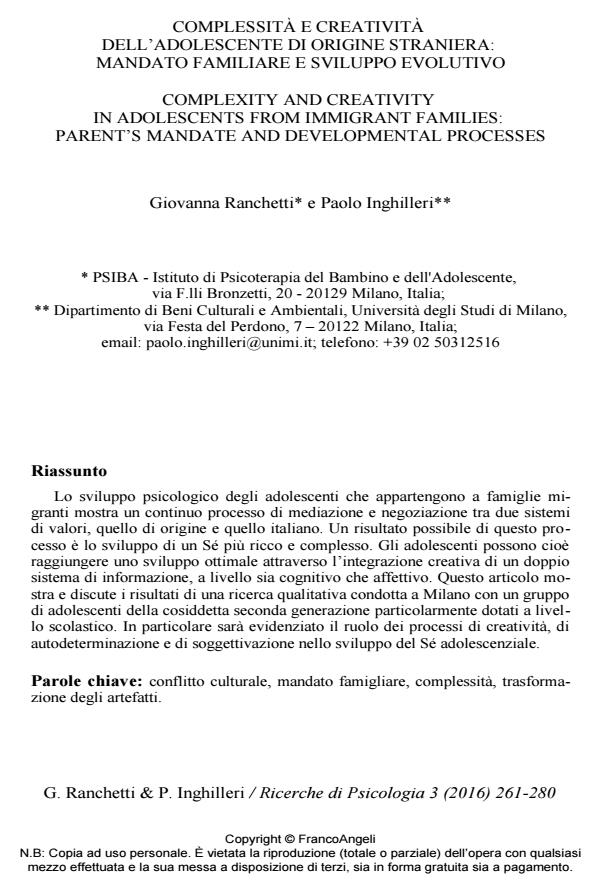Complexity and creativity in adolescents from immigrant families: parent’s mandate and developmental processes
Journal title RICERCHE DI PSICOLOGIA
Author/s Giovanna Ranchettie, Paolo Inghilleri
Publishing Year 2016 Issue 2016/3
Language Italian Pages 20 P. 261-280 File size 221 KB
DOI 10.3280/RIP2016-003001
DOI is like a bar code for intellectual property: to have more infomation
click here
Below, you can see the article first page
If you want to buy this article in PDF format, you can do it, following the instructions to buy download credits

FrancoAngeli is member of Publishers International Linking Association, Inc (PILA), a not-for-profit association which run the CrossRef service enabling links to and from online scholarly content.
The psychological development of the adolescents from immigrant families living in Italy shows a continuous process of mediation and negotiation between two systems of values, the traditional and that Italian one. The possible result is the growth of the complexity of the adolescent’s Self. They can reach optimal development through the creative efforts of integration of a double system of cognitive and affective information. The article discusses the results of a qualitative research conducted in Milan with a group of adolescents belonging to migrant families but born or educated in Italy, particularly skilled at school. The relevance of Self determination and creativity processes in the adolescent’s development will be discussed.
Keywords: Cultural conflict, Self determination, family mandate, complexity, artifacts modification.
Giovanna Ranchettie, Paolo Inghilleri, Complessita e creativita dell’adolescente di origine straniera: mandato familiare e sviluppo evolutivo in "RICERCHE DI PSICOLOGIA " 3/2016, pp 261-280, DOI: 10.3280/RIP2016-003001